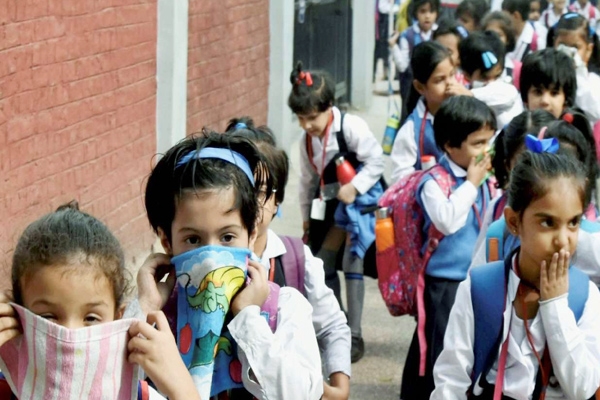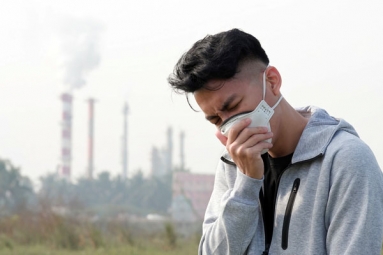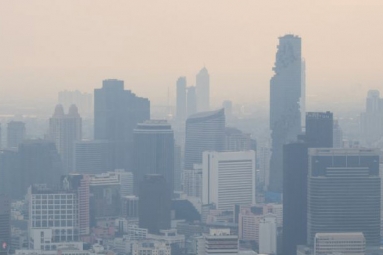
(Image source from: DNA India)
Day-after-day around 93 percent of the world's children under the age of 15 (1.8 billion children) breathe contaminated air that puts their health and growth at serious risk, the World Health Organization (WHO) said in a new report that puts into numbers the annihilating impact that air pollution is having on the global population's health.
According to WHO's report, tragically, many of these children die, with as many as six lakh estimated to have perished in 2016 alone due to complications from acute lower respiratory infections caused by dirty air.
The report on air pollution and child health released on the eve of the WHO's first-ever global conference on Air Pollution and Health on Tuesday unveils that when expectant women are open to the polluted air, they are more probable to give birth prematurely, and have small, low birth-weight children.
Air pollution as well as impacts neurodevelopment and cognitive ability and can trigger asthma, and childhood cancer. Children unprotected to high levels of air pollution may be at greater risk for chronic diseases such as cardiovascular disease later in life, the WHO said.
Related content: India's Air Quality Slides to Worst Possible Category
"Polluted air is poisoning millions of children and ruining their lives," said Dr. Tedros Adhanom Ghebreyesus, WHO Director-General. "This is inexcusable. Every child should be able to breathe clean air so they can grow and fulfill their full potential."
One reason why children are in particular vulnerable to the effects of air pollution is that they breathe more rapidly than adults and so absorb more pollutants. They also live close to the ground, where some pollutants reach peak concentrations - at a time when their brains and bodies are still developing.
Additionally, newborns and small children are frequently at home. If the family is burning fuels like wood and kerosene for cooking, heating, and lighting, they would be exposed to higher levels of pollution.
"Air pollution is stunting our children's brains, affecting their health in more ways than we suspected," Dr. Maria Neira, director, Department of Public Health, Environmental and Social Determinants of Health at WHO, said in a release accompanying the report.
"WHO is supporting the implementation of health-wise policy measures like accelerating the switch to clean cooking and heating fuels and technologies, promoting the use of cleaner transport, energy-efficient housing and urban planning. We are preparing the ground for low emission power generation, cleaner, safer industrial technologies, and better municipal waste management," Dr. Neira added.
-Sowmya Sangam



















